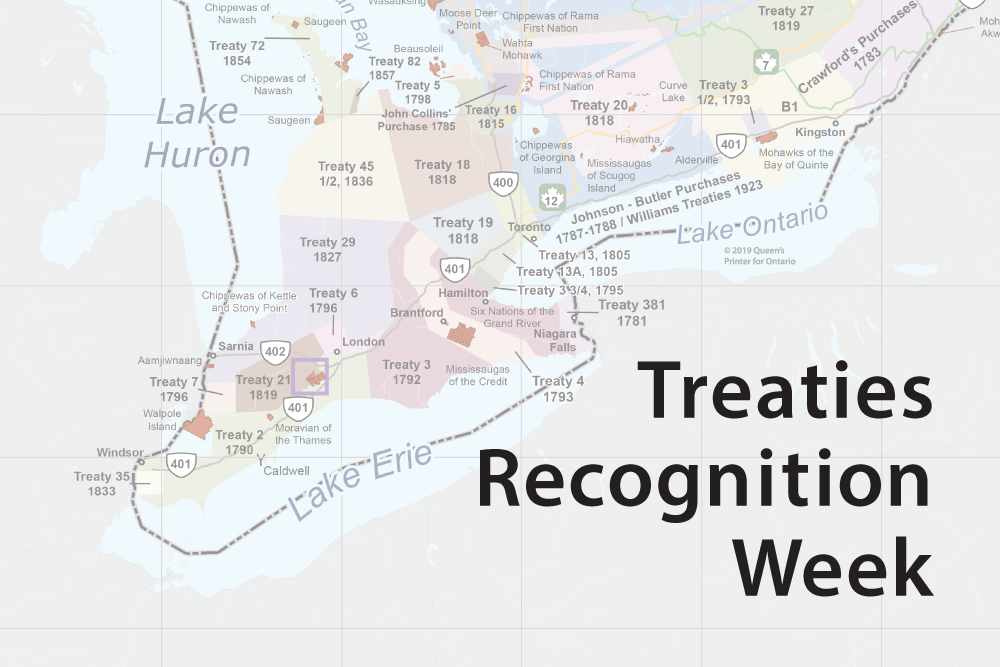Queen's marks Treaties Recognition Week
November 3, 2020
Share

Since long before Queen’s University was established by royal charter, lands along the north-eastern shore of Lake Ontario, including Kingston and its surrounding areas, have been traditional Anishinaabe and Haudenosaunee territory. The Crown acquired much of the land from Indigenous peoples in 1783 as part of a treaty agreement called the Crawford Purchase, issuing portions of it back to Kenhteke Kanyen’keha:ka (the Mohawks of the Bay of Quinte) a year later for their support during the American Revolutionary War.
In honour of this historic treaty, and countless others concerning lands across what would become the province of Ontario, Queen’s University is observing Treaties Recognition Week from Nov. 2 to Nov. 6, 2020.
“The treaties specifically teach us about our relationships and responsibilities to each other and the agreements made by all of our ancestors. They provide the historical importance that outlines why we say ‘we are all treaty people’,” says Kanonhsyonne (Janice Hill), Associate Vice-Principal (Indigenous Initiatives and Reconciliation). “Treaties Recognition Week provides an important opportunity to reflect on Indigenous histories that have been under-recognized or unrecognized by Canadian education systems. In observing this week, our campus community can take time to learn about treaties and Indigenous treaty rights—particularly those in our local areas—and how they apply to the ways we live, work, and thrive on these lands today.”
One meaningful step toward recognizing and respecting traditional Indigenous lands is through the act of land acknowledgements. Coming out of the university’s 2017 Truth and Reconciliation Commission Task Force Final Report, Queen’s began to incorporate land acknowledgements widely into official events and celebrations, convocations, meetings, and more. The practice is meant to express firm support for Indigenous cultural history and provide frequent moments of reflection during which the campus community can pay respect to ancestral Indigenous lands.
“It’s important to pay respect to ancestral territories and local Indigenous communities,” says AVP Hill, whose office offers a land acknowledgement workshop for Queen’s community members. “Even more important, however, is what we do to carry these acknowledgements forward into true acts of reconciliation.”
Treaties Recognition Week activities
With the support of Canada’s Ministry of Indigenous Affairs, Queen’s Faculty of Education is hosting a Treaties Recognition Week lecture on Nov. 5 at 5:15 pm as part of their ongoing Indigeneity, Inclusion and Equity Series. Alan Ojiig Corbiere, an assistant professor of history at York University, will speak on his archival, oral history, and museological research into treaties and treaty-making in the Great Lakes Region. Campus community members are urged to register for the virtual event. For more Indigenous events and programming, visit the Four Directions Indigenous Student Centre Facebook page and visit the Office of Indigenous Initiatives website to learn more about Indigenization at Queen’s.
Dean of the Faculty of Health Sciences, Jane Philpott, also shared more on treaties and Treaties Recognition Week on the FHS Dean’s Blog.